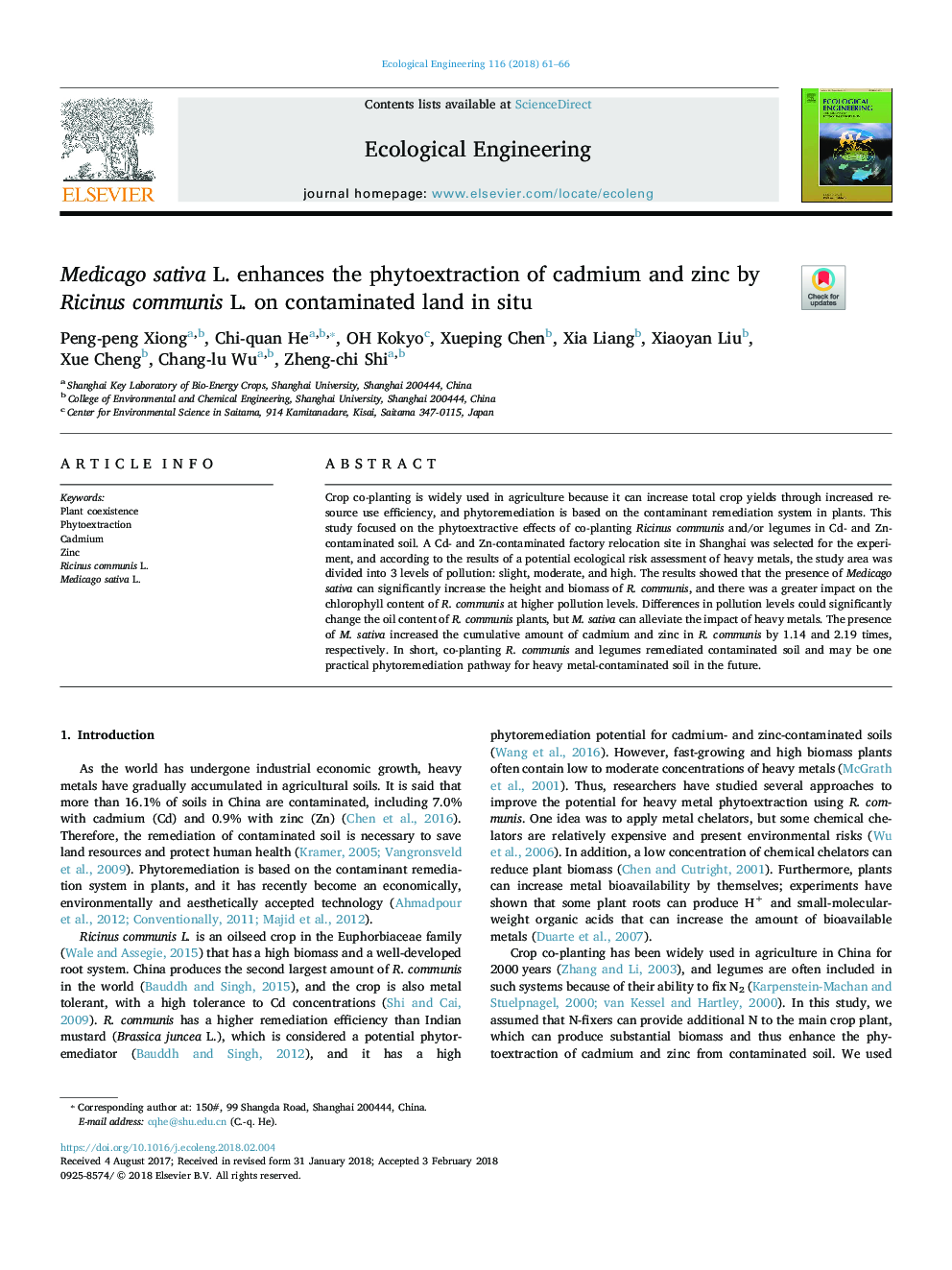| Article ID | Journal | Published Year | Pages | File Type |
|---|---|---|---|---|
| 8847909 | Ecological Engineering | 2018 | 6 Pages |
Abstract
Crop co-planting is widely used in agriculture because it can increase total crop yields through increased resource use efficiency, and phytoremediation is based on the contaminant remediation system in plants. This study focused on the phytoextractive effects of co-planting Ricinus communis and/or legumes in Cd- and Zn-contaminated soil. A Cd- and Zn-contaminated factory relocation site in Shanghai was selected for the experiment, and according to the results of a potential ecological risk assessment of heavy metals, the study area was divided into 3 levels of pollution: slight, moderate, and high. The results showed that the presence of Medicago sativa can significantly increase the height and biomass of R. communis, and there was a greater impact on the chlorophyll content of R. communis at higher pollution levels. Differences in pollution levels could significantly change the oil content of R. communis plants, but M. sativa can alleviate the impact of heavy metals. The presence of M. sativa increased the cumulative amount of cadmium and zinc in R. communis by 1.14 and 2.19 times, respectively. In short, co-planting R. communis and legumes remediated contaminated soil and may be one practical phytoremediation pathway for heavy metal-contaminated soil in the future.
Related Topics
Life Sciences
Agricultural and Biological Sciences
Ecology, Evolution, Behavior and Systematics
Authors
Peng-peng Xiong, Chi-quan He, OH Kokyo, Xueping Chen, Xia Liang, Xiaoyan Liu, Xue Cheng, Chang-lu Wu, Zheng-chi Shi,
